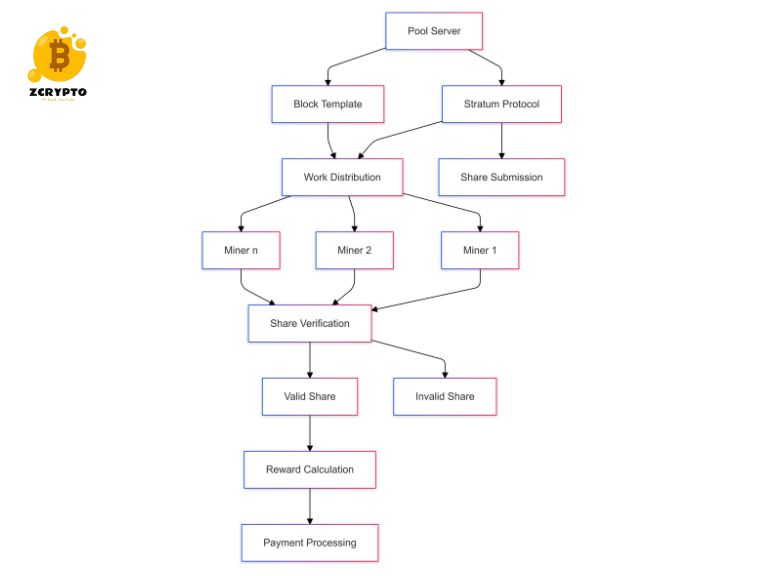What are Decision Support Systems (DSS)?
Decision Support Systems (DSS) are interactive computer-based systems that provide decision-makers with data analysis, scenario planning, and forecasting capabilities to support their decision-making processes. Unlike ordinary operations applications, DSS integrates both human and automated elements to provide a comprehensive approach to problem-solving.
- Unlocking Business Efficiency: The Ultimate Guide to Enterprise Resource Planning (ERP)
- How to Master Earnings Calls: A Comprehensive Guide for Investors and Analysts
- Top Benefits of Joining a Credit Union: Financial Services, Loans, and More
- Understanding Due From Accounts: How to Track and Manage Incoming Assets in Your Business
- Understanding Day Orders: Definition, Duration, Types, and Practical Examples for Investors
A typical DSS consists of several key components:
Bạn đang xem: How Decision Support Systems (DSS) Revolutionize Financial Decision-Making and Investment Strategies
-
Model Management System: This component includes mathematical models, statistical models, and optimization models that help in analyzing data.
-
User Interface: This is the interaction layer between the user and the system, making it easier for users to input data and interpret results.
-
Knowledge Base: This stores the knowledge and expertise required for decision-making, often incorporating expert systems.
DSS differs significantly from other software applications because it is specifically designed to handle semi-structured or unstructured problems where the solution is not immediately clear. By integrating these components, DSS provides a powerful platform for analyzing complex financial data.
Role of DSS in Portfolio Optimization
Portfolio optimization is one of the most critical applications of DSS in finance. Here’s how it works:
-
Determining Optimal Asset Allocation: DSS helps in determining the optimal mix of assets based on an investor’s risk tolerance and return targets. By analyzing historical data and forecasting future price movements, DSS can suggest the best asset allocation strategy.
-
Constructing the Most Suitable Portfolio: DSS aids in constructing a portfolio by choosing the right financial instruments, deciding on allocation percentages, and determining the quantity of each instrument. This process involves integrating both financial and non-financial data to ensure a balanced portfolio.
-
Data Analysis and Forecasting: Historical data analysis is crucial in understanding past trends, while forecasting future price movements helps in making proactive decisions. DSS integrates these analyses to provide a comprehensive view of potential portfolio performance.
By leveraging these capabilities, DSS enables financial professionals to create optimized portfolios that maximize returns while minimizing risks.
DSS in Risk Management
Risk management is another vital area where DSS plays a significant role:
-
Xem thêm : What is Network Effect? Analyzing Value Growth in Connected Systems
Managing Credit Risk and Value-at-Risk Modeling: DSS helps in assessing credit risk by analyzing customer financial status and market conditions. It also employs value-at-risk (VaR) modeling to predict potential losses over a specific time horizon with a given probability.
-
Assessing Risk Factors: By integrating various risk factors such as market risk, operational risk, and credit risk, DSS provides a holistic view of potential risks. This helps in managing customer requests more effectively.
-
Knowledge-Based Systems: The knowledge base within DSS reinforces reasoning with expert data for more accurate risk management. This ensures that decisions are based on both historical data and expert judgment.
The use of DSS in risk management enhances the ability to predict and mitigate risks, thereby protecting investments from unforeseen market fluctuations.
DSS and Investment Strategy Optimization
Investment strategy optimization is another key area where DSS excels:
-
Refining Investment Policy: DSS aids in refining investment policies by analyzing various scenarios and predicting outcomes. This includes arbitrage trading models that identify opportunities for risk-free profits.
-
Efficient Frontier Analysis: By using efficient frontier analysis, DSS helps in identifying the optimal portfolio that offers the highest expected return for a given level of risk.
-
Handling Fixed-Income Portfolios: DSS is also effective in managing fixed-income portfolios by optimizing bond allocations based on yield curves and credit ratings.
-
Technological Innovations: The integration of AI and machine learning into DSS has significantly enhanced its sophistication. These technologies enable more accurate predictions and better strategy optimization.
The impact of these technological innovations has been profound, allowing for more precise and dynamic investment strategies.
Case Studies and Examples
To illustrate the practical application of DSS, let’s consider a few examples:
-
Spreadsheet-Based Investment Modeling: Many financial institutions use spreadsheet-based DSS for investment modeling. These systems allow users to input various scenarios and see the impact on their portfolios.
-
Xem thêm : Mastering the Dow Theory: A Comprehensive Guide to Market Trends and Investment Strategies
Campaign Management System for Tax Payment Restructuring: A specific case study involves a campaign management system developed using DSS for tax payment restructuring. This system analyzed taxpayer data to identify those who could benefit from restructuring their tax payments, resulting in improved compliance rates.
These examples demonstrate how DSS can be applied in real-world financial scenarios to achieve tangible benefits.
Benefits and Advantages of Using DSS
The benefits of using DSS are numerous:
-
Faster and More Informed Decision-Making: With the ability to analyze vast amounts of data quickly, DSS enables faster decision-making processes.
-
Improved Efficiency: Automation of routine tasks frees up time for more strategic activities.
-
Better Risk Management: By predicting potential risks accurately, DSS helps in mitigating them effectively.
-
Maximizing Potential Returns: By optimizing portfolios and investment strategies, DSS enhances the ability to maximize potential returns while minimizing risks.
Overall, DSS significantly improves the efficiency and effectiveness of financial decision-making processes.
Future Research and Development
Looking ahead, there are several areas where future research could further enhance our understanding of DSS in financial decision-making:
-
Advancements in AI and Machine Learning: Further integration of AI and machine learning could lead to even more sophisticated predictive models.
-
Big Data Analytics: The ability to handle large datasets (big data) will continue to be crucial as financial markets generate increasing amounts of data.
-
Enhanced User Interfaces: Improving user interfaces will make it easier for non-technical users to leverage the power of DSS.
These advancements promise to make DSS even more powerful tools for financial professionals.
Nguồn: https://earnestmoney.skin
Danh mục: Blog


















